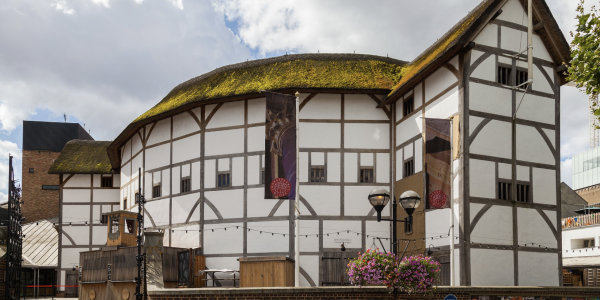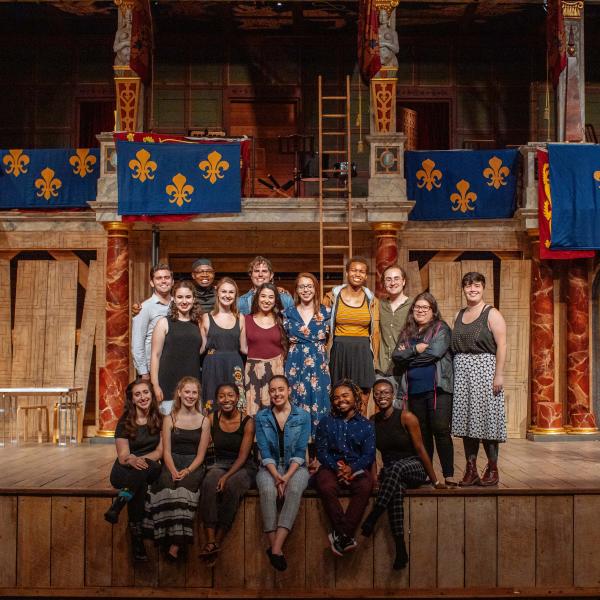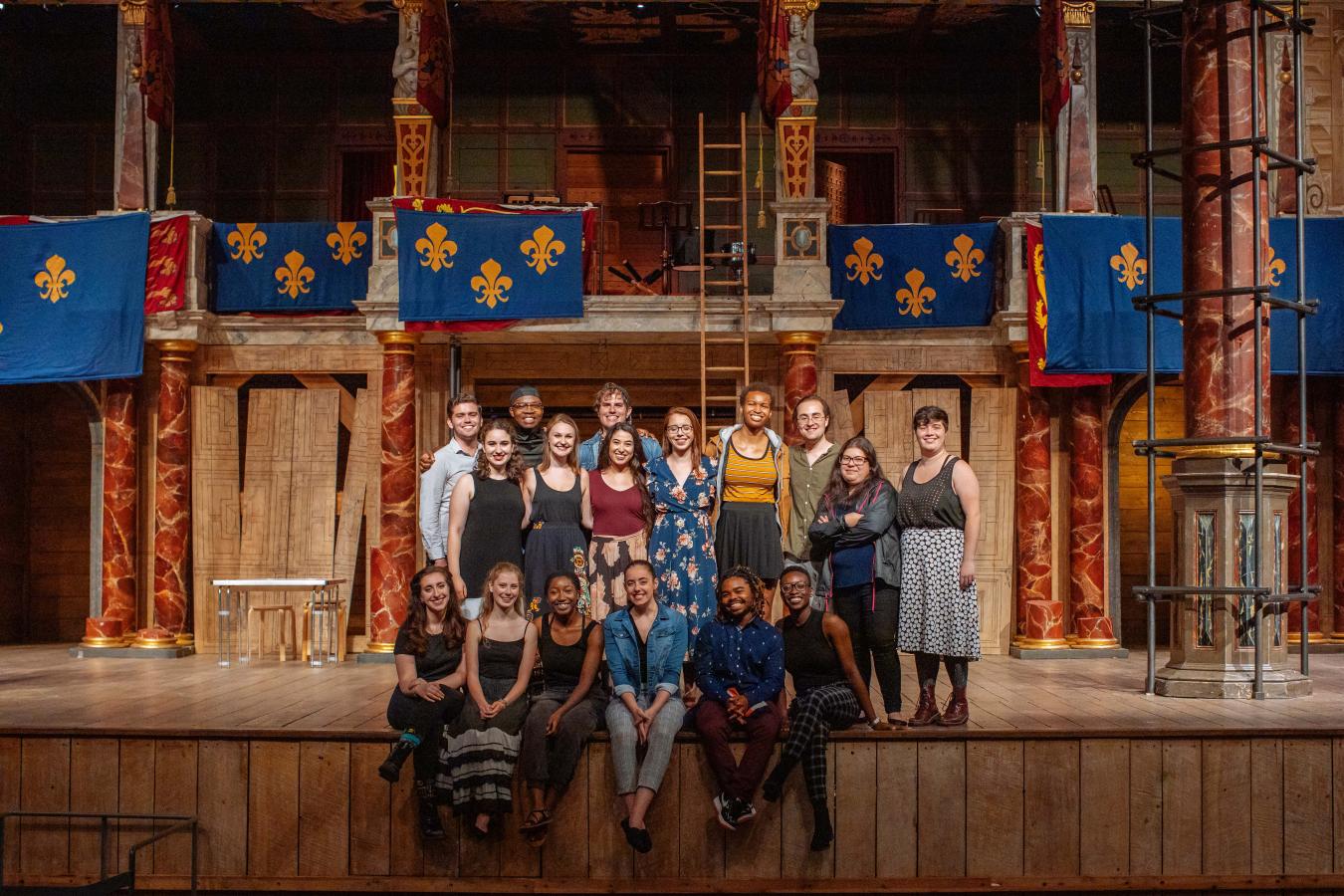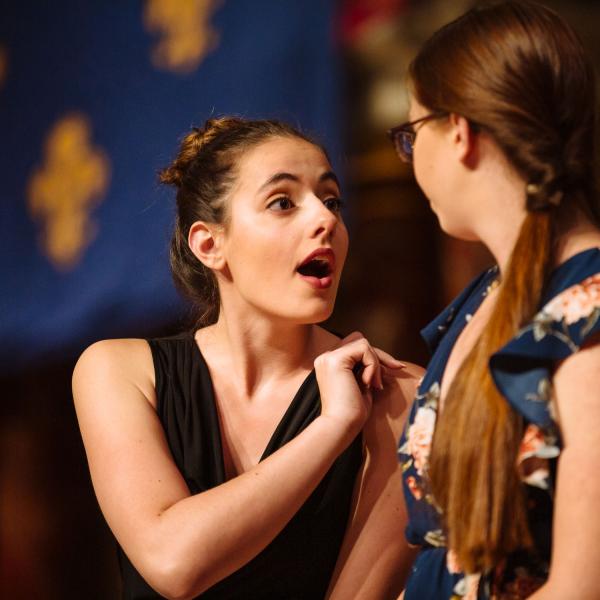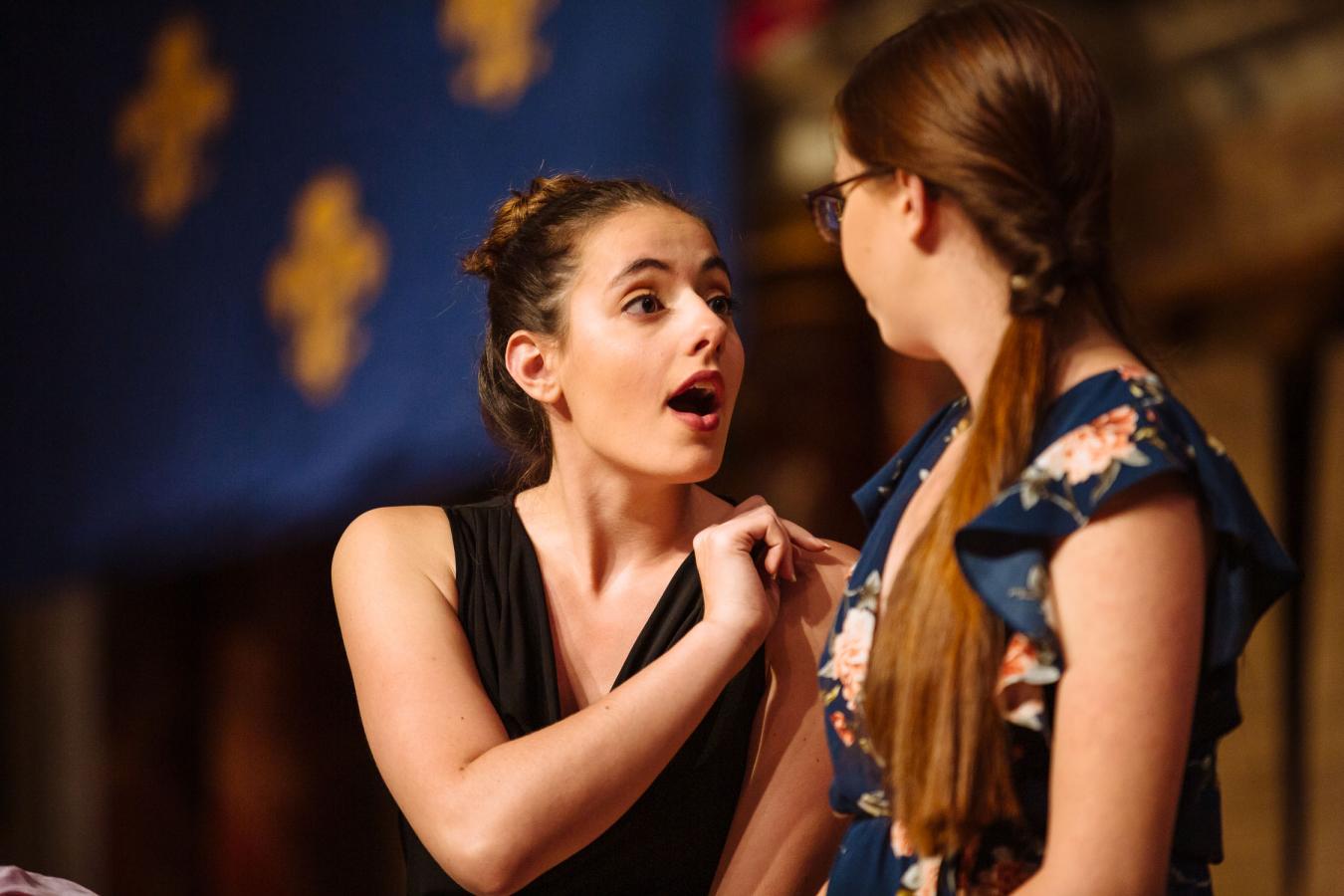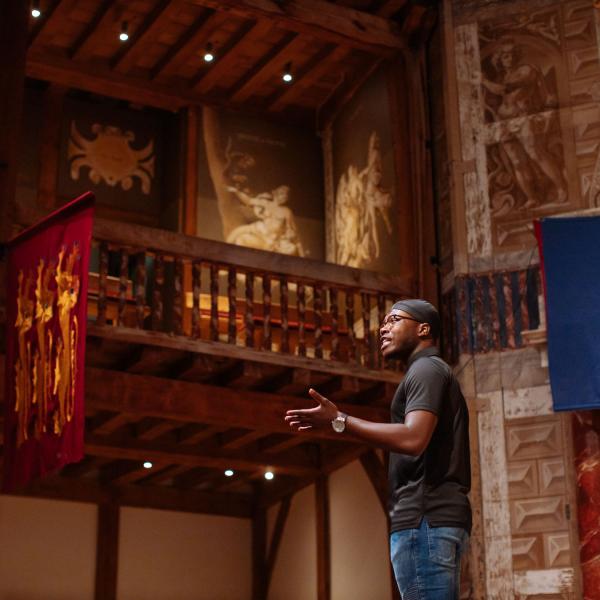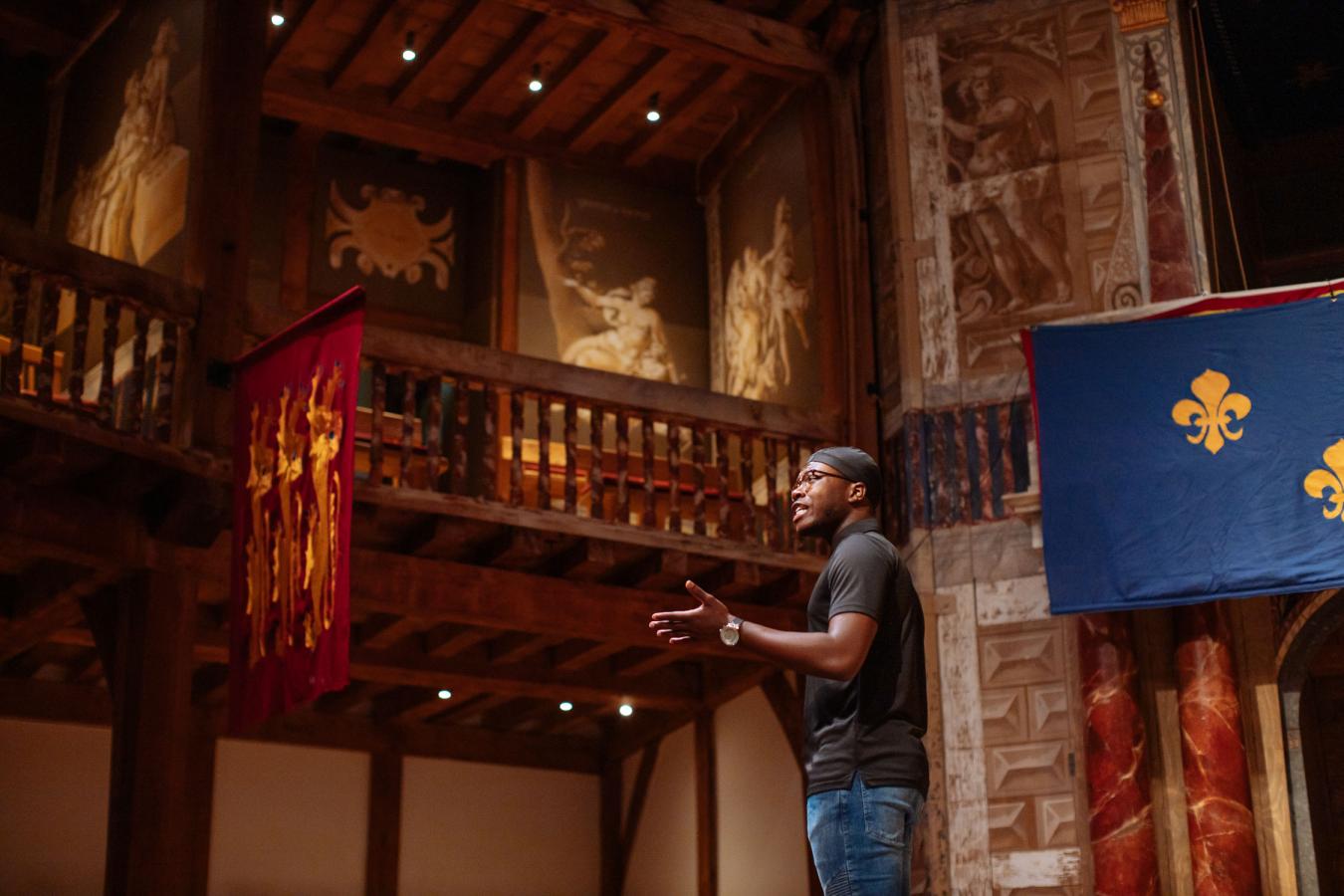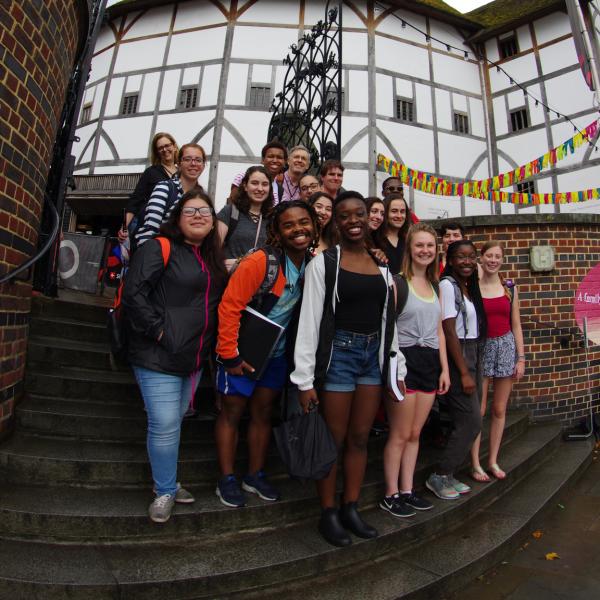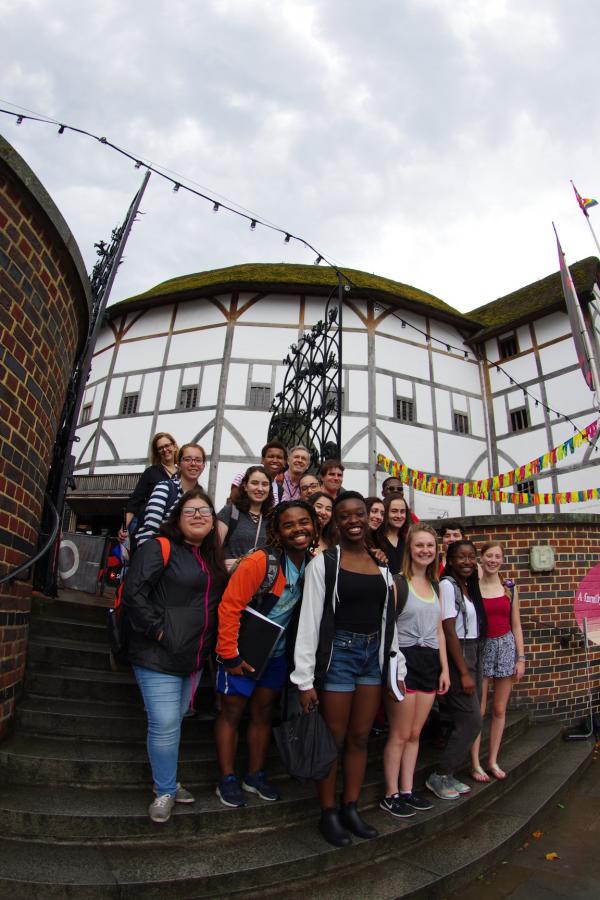Shakespeare's Globe: All the World's a Stage
Why—more than 400 years later—do we continue to read the works of William Shakespeare? Why do we continue to stage his plays, identify with his characters, and communicate our thoughts in his language? Why do his poems and plays retain their vibrancy and immediacy, even today?
This course invites students to answer these questions by inhabiting Shakespeare’s language from the inside and out—breathing in the words of his characters with creative and careful study, while moving out to fully engage the text in performance. Reading plays, watching films, listening to monologues, voicing dialogue, physically enacting fight scenes, and even navigating plots with joysticks, students will develop deep appreciation for the writer who is the original GOAT—the greatest of all time.
In this two-semester course, we will read and study Shakespeare’s plays in their historical context, learning about the original practices used in performance at both the Elizabethan and Jacobean court theatres as well as the public theatres on the South Bank of the Thames. We will also consider them as adaptable playscripts that have been rewritten over the past 400 years, reinterpreted at different times by different actors in different cultures the world over. Students will contribute to this performance repertoire with their own 21st-century interpretations, striding the stage of the reconstructed Globe Theatre in a capstone experience that concludes the course with a summer trip to London. If all the world’s a stage, come be a player in it!
